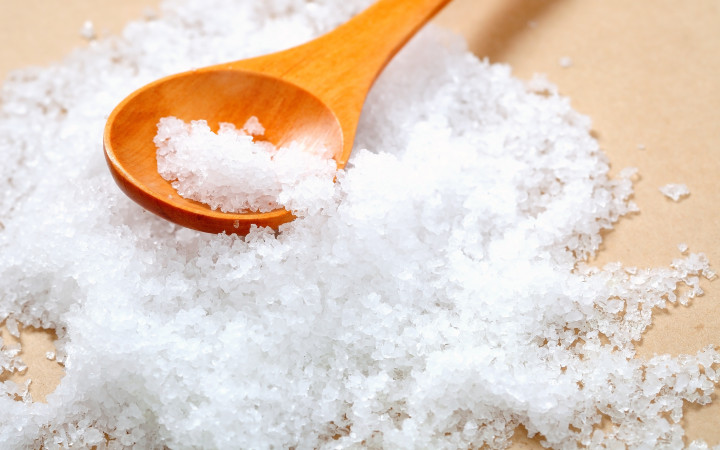Today’s Wonder of the Day was inspired by Layla. Layla Wonders, “How did oceans become salt water?” Thanks for WONDERing with us, Layla!
Have you ever wondered what you'd do if you were stranded on a deserted island in the ocean? You'd first want to find food, fire, shelter, and water. Water? That's right, even though you may be surrounded by water, those of you who have been to the beach know that you don't want to drink sea water.
Why not? Because sea water is salty. But why is sea water salty and not drinkable?
Ocean water is salty because it contains large amounts of dissolved minerals. These minerals are often called “salts." Depending on which part of the world you are splashing around in, about 3.5% of the oceans' waters are made up of salts. Water near the equator tends to be saltier, while northern waters tend to be fresher, meaning they contain fewer salts.
The ocean's floor contains huge amounts of minerals that are eroded and stirred up by the ocean's natural motion. As the movement of the water and waves erodes the ocean floor, minerals are dissolved into the water and the amount of salt increases. This is how the ocean constantly replenishes its saltiness.
Oceans also get some of their saltiness from runoff water that pours into oceans from streams, rivers, and lakes. If you're wondering how that is possible, since these bodies of water contain fresh water, you may be surprised to learn that all lakes, rivers, and streams contain some dissolved salts. The concentration of salts dissolved in these bodies of water, however, is much less than that of the oceans, which is why their water seems less salty in comparison.
Salts cannot build up in most lakes, because they have outlets, such as rivers and streams. These outlets allow water to flow toward the oceans, carrying away minerals and salts.
The Dead Sea, on the other hand, is an example of a body of water with no outlet. The minerals that flow into the Dead Sea cannot escape, because there is no outlet to wash them away into the ocean. Since the minerals cannot escape, the Dead Sea contains some of the most saline (that means salty!) water on Earth.
In fact, as much as 35% of the water in the Dead Sea is dissolved salt! This is nearly ten times more than the salt concentration in the oceans. The saline water of the Dead Sea is deadly to most living creatures, so you won't find any fish or sea creatures living there. Only a few types of bacteria and algae can survive the harsh Dead Sea waters. That's why they call it the Dead Sea!
While you certainly wouldn't want to drink the water, a dip in the Dead Sea is a unique experience. Due to its high salt concentration, the density of the water is much greater than fresh water. This makes a swimmer's body much more buoyant. A dip in the Dead Sea is a bit like dropping a cork into a bowl of water. The dense water makes it easy to float without even trying. In fact, the water makes swimmers so buoyant that it's hard to dive or swim under the surface.




